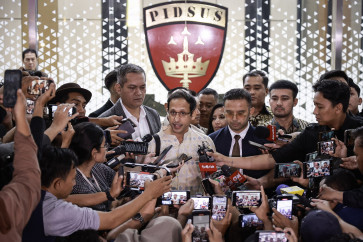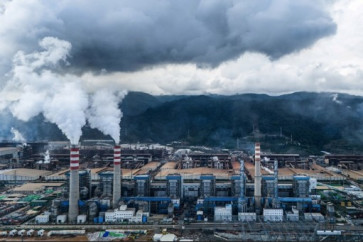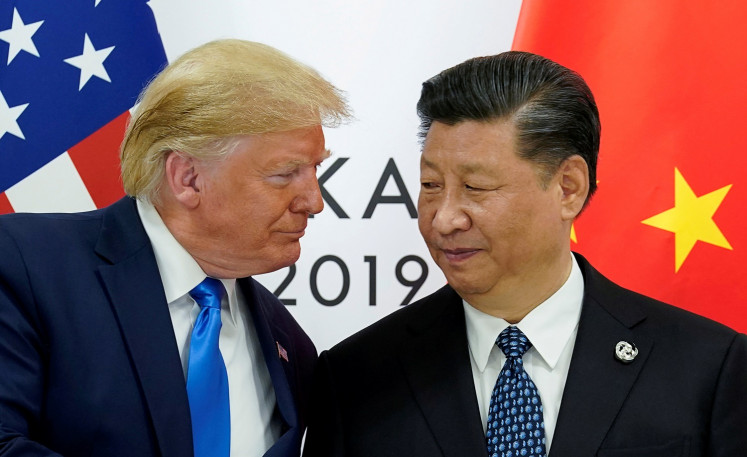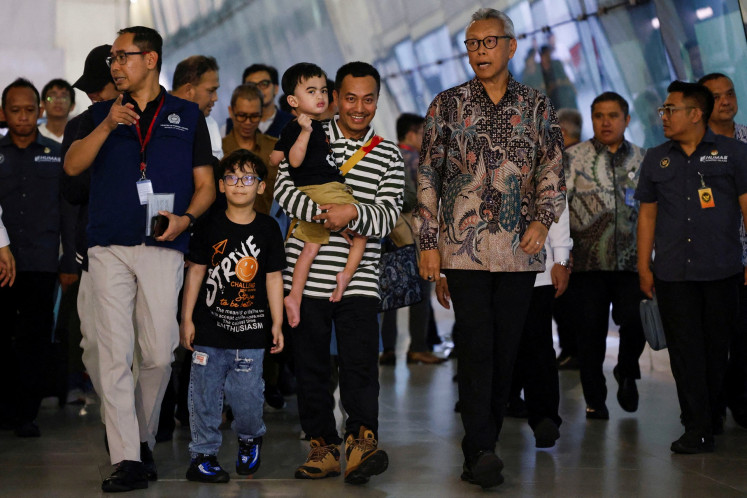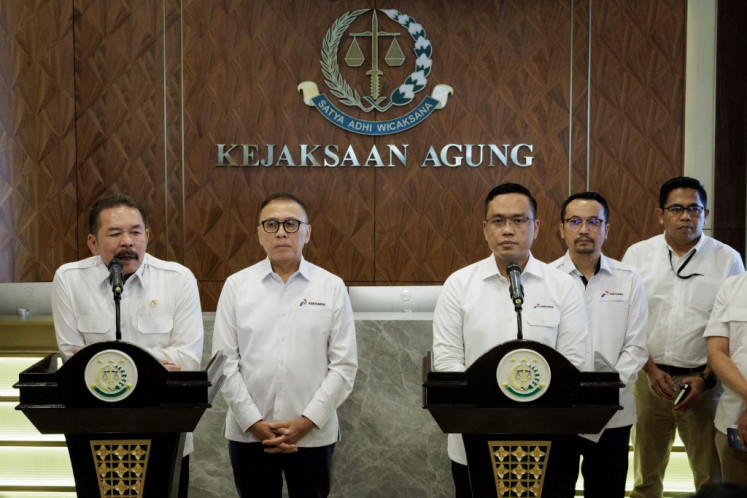Popular Reads
Top Results
Can't find what you're looking for?
View all search resultsPopular Reads
Top Results
Can't find what you're looking for?
View all search resultsForging stronger blue links to Indonesia
Our oceans and landscapes are our future
Change text size
Gift Premium Articles
to Anyone

O
ur oceans and landscapes are our future. We depend on them for our food, clean air, materials, our income and well-being. Their responsible management is key to preventing extinctions of species, hunger, mass migrations and extreme climatic events in the twin battles for climate and biodiversity.
Nobody understands this better than Indonesia, as the largest archipelagic country in the world whose 55,000 km of coastline are home to roughly 70 percent of the population. The European Union, like Indonesia, knows that the success of the “blue,” sustainable ocean economy depends on keeping our oceans healthy.
The challenges are huge. In less than 10 years our oceans could contain 1 ton of plastic for every 3 tons of fish. Illegal, unreported and unregulated fishing (IUU) is worth up to €10 billion a year.
That is why the EU is taking the lead to protect oceans and improve ocean governance around the globe. In November, we launched an initiative to make sure that the world’s oceans are managed better and more sustainably.
Indonesia is already a major ally in our push for healthy and productive oceans. We are also natural partners, as the EU is the largest market for fish and seafood in the world and Indonesia the second largest producer (for both fish, … and plastic debris ending as ocean litter!).
The EU follows a zero tolerance policy towards illegal fishing. Since President Joko “Jokowi” Widodo has made fighting IUU a priority of its office, Indonesia has reformed its fisheries governance and taken measures to stamp out illegal fishing in its waters. Action is as well taken to extend producers responsibility and reduce waste, thanks to the efforts of front-runners among companies and NGOs.
In addition, Indonesia is one of 91 countries to apply the EU catch certification scheme, which allows fisheries products traded with the EU to be traced all the way from the fishing net to the plate. Responsible buyers, investors and suppliers can only work together, if they are to be genuinely effective.
We see that the drive for better ocean management is gaining momentum around the world, from the UN level to regional organizations such as ASEAN.
So the EU is especially proud to host the fourth “Our Ocean” conference in October 2017. Indonesia has announced that it will host “Our Ocean 2018.” I look forward to working closely together with Indonesia on this, a point I will raise with the Maritime Affairs and Fisheries Minister Susi Pudjiastuti at the World Ocean Summit in Bali this week.
But the EU and Indonesia are not just partnering when it comes to keeping our oceans healthy. We are also working together to ensure the sustainability of “green” land-based resources. Indonesia’s forest landscapes are unique biodiversity hotspots, they provide income for rural communities and shelter all from extreme climatic events.
That makes illegal logging or unsustainable palm oil production critically important challenges, as the consequences are social, economic and environmental.
In 2016 we achieved an important milestone in this area, using trade to promote legality. Last November the first shipment of Indonesian licensed woods departed to Europe, making Indonesia the first country in the world to export such timber to the EU.
We import precious timber, beautiful fishes and snake skins. We therefore feel our duty to step up cooperation against global wildlife trafficking (worth almost €20 billion a year), targeting the organized criminal groups that control this illegal trade and looking at ways of strengthening enforcement and reducing demand for illegal products.
It’s also great to see that the principles of the circular economy — smart use of resources, minimal waste and maximum re-use and recycling of materials — are gaining ground among Indonesian businesses. A more circular economy will also help reduce carbon emissions, a goal both we have all committed to in ratifying the Paris Climate Agreement.
In short, Indonesia is a valued partner. I look forward to deepening our “blue” and “green” ties in the months and years to come.
_________________________
The writer is European Commissioner for Environment, Maritime Affairs and Fisheries.

